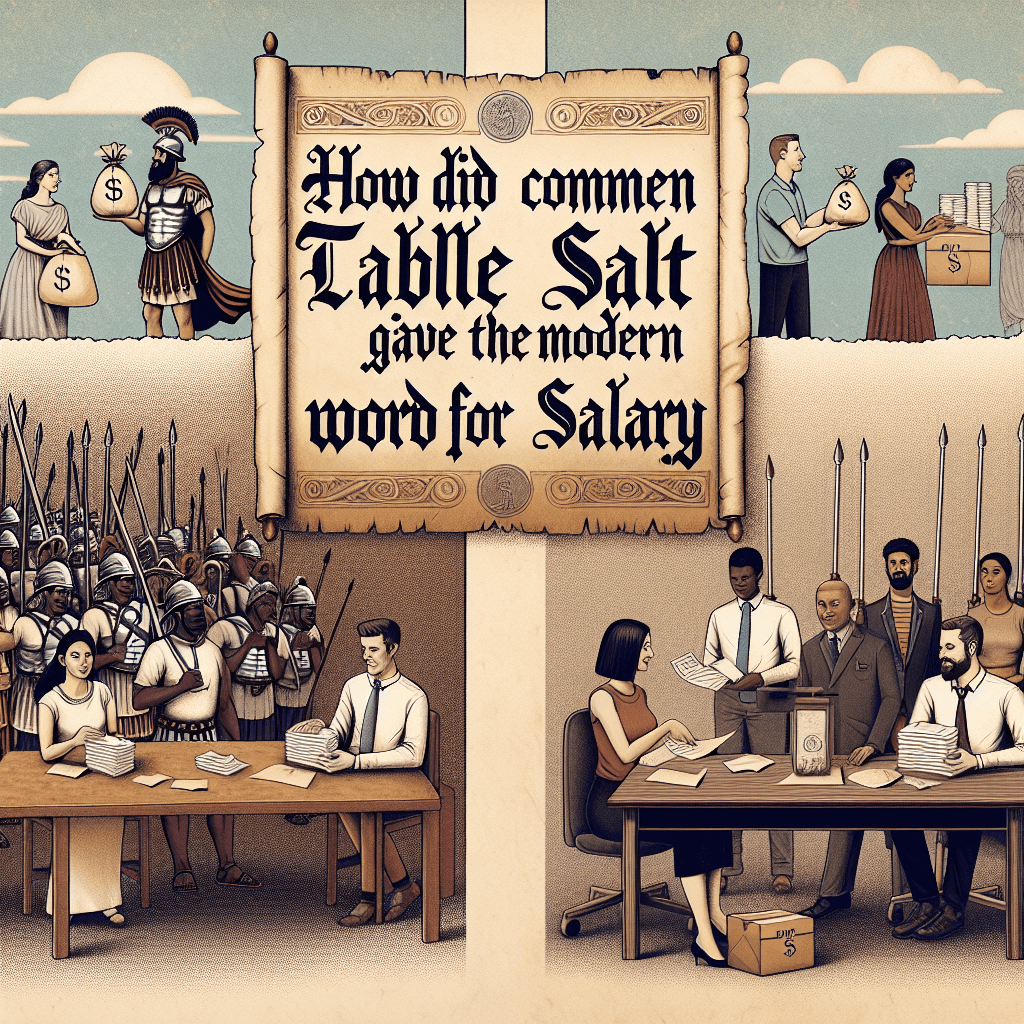How did common table salt give us the modern word for salary
Long before it was a staple in your kitchen, this common crystal was so valuable it was used to pay Roman soldiers, giving us the very word for salary.


Too Long; Didn't Read
The word salary comes from the Latin term salarium, which was an allowance Roman soldiers received to buy salt. Because salt was a valuable commodity, this salt money eventually came to mean a regular payment for services.
Title: Worth Your Salt: How Did Common Table Salt Give Us the Modern Word for Salary?
Introduction
Have you ever heard someone described as "not worth their salt"? This common idiom, meaning someone isn't competent or deserving of their pay, is used casually today. But what if it had a literal origin, rooted in a time when salt was as valuable as gold? The shaker on your dining table holds a direct linguistic link to your paycheck. The journey from a simple mineral to the modern concept of a "salary" is a fascinating story of history, economics, and language. This post will uncover how ancient Rome's reliance on salt gave us one of the most fundamental words in our working lives, proving that the origins of our language are often hiding in plain sight.
The 'White Gold' of the Ancient World
Long before refrigerators made food preservation simple, salt was a revolutionary and essential commodity. In the ancient world, it was far more than a mere seasoning; it was a strategic resource often called "white gold." Its primary value came from its ability to preserve meat and fish, allowing food to be stored for long journeys, lean winters, or to feed massive armies on the move. Beyond preservation, salt was also used for:
- Medicinal Purposes: As a natural antiseptic, it was used to clean wounds and prevent infection.
- Religious Rituals: Many ancient cultures, including the Romans and Hebrews, used salt in purification rites and offerings.
- Trade and Currency: Its universal necessity made salt a stable and reliable form of currency and a key item in global trade networks.
Control over salt production and trade routes could build empires. In fact, Rome's first great highway, the Via Salaria or "Salt Road," was built specifically to transport salt from the coastal salt pans at Ostia to the capital city. This highlights just how central the mineral was to the Roman economy and state power.
The Roman Legions and the Salarium Argentum
The most direct link between salt and salary comes from the mighty Roman army. While the popular tale suggests that Roman legionaries were paid directly in sacks of salt, the historical reality is slightly more nuanced, though no less fascinating. The Latin word for salt is sal. From this, the Romans derived the term salarium argentum.
Initially, this salarium was not a soldier's entire wage but a special allowance or stipend given to them specifically to purchase salt and other vital rations. Salt was essential for their health and for preserving their food supplies while on campaign. Over time, as Rome's monetary system became more standardized, this "salt money" evolved. The term salarium eventually shed its direct connection to purchasing salt and came to mean the soldier's regular payment or stipend for their service, paid in coin.
The phrase "worth one's salt" likely originates from this period, signifying a soldier who was competent and effective enough to deserve their salarium. If a soldier performed poorly, they were literally not worth the salt allowance they were given.
From Latin to English: The Journey of a Word
The word's journey from a Roman military payment to your modern paycheck is a clear example of linguistic evolution.
- Latin: The word began as salarium, meaning a soldier's allowance.
- Anglo-Norman/Old French: As the Roman Empire fell and languages evolved, the word entered Old French as salaire.
- Middle English: Following the Norman Conquest of England in 1066, the word was adopted into Middle English as salarie.
- Modern English: From there, it transformed into the word we know today: salary, a fixed regular payment, typically paid on a monthly or biweekly basis, made by an employer to an employee.
Conclusion
The evolution from sal to salary is a powerful reminder that our language is a living museum, with everyday words holding extraordinary histories. The salt we sprinkle thoughtlessly on our food was once a cornerstone of civilization, a tool of preservation, a form of currency, and the very basis for a soldier's pay. So, the next time you receive your salary, take a moment to appreciate its humble, salty origins. It’s a direct connection to the Roman legionaries who marched along the Via Salaria, earning their keep and proving they were, quite literally, worth their salt.


